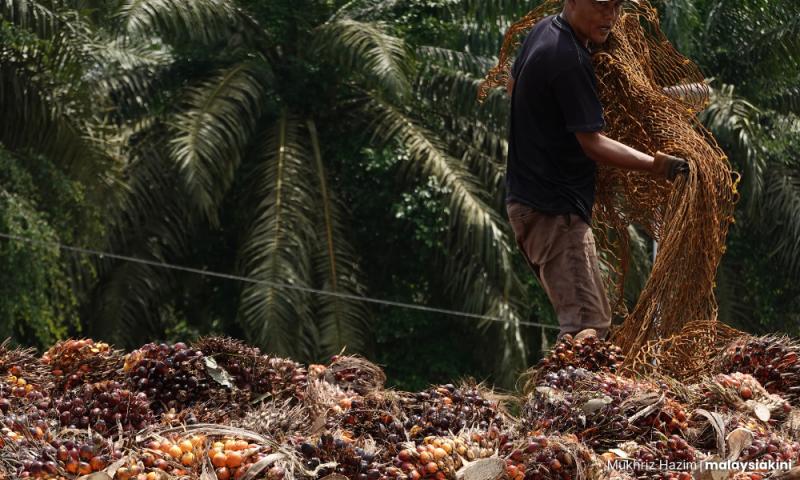LETTER | There's gold in oil palm biomass
LETTER | The national biomass action plan has been launched. Since oil palm biomass is the largest, the Plantation and Commodities Ministry has been tasked with coordinating the execution of the plan.
A key policy recommendation is to establish biomass collection centres in strategic locations to optimise logistics and create economies of scale. The supply from a lone mill cannot justify the return on investment.
While we are contemplating establishing biomass collection and processing hubs, our neighbours are moving ahead with concrete plans to commercially exploit the vast potential of oil palm biomass.
Only Malaysia and Indonesia are blessed with huge amounts of oil palm biomass. The irony of it all is that neighbouring countries that do not have even a single oil palm tree are taking serious measures to embrace the potentially lucrative biomass business. There is no doubt that there is gold in oil palm biomass.
Admittedly there are risks involved. It is a comparatively new industry. Market uncertainty is one major risk. Technology is also a risk. So is raw material supply. Investment is also not cheap but high risks can also deliver high returns.
Palm oil production stagnating
Private investors may not jump in without clear returns on investment. This is where the government must chip in. All the analyses suggest that oil palm biomass is destined to transform the country’s oil palm economy.
At around six million hectares, we have no more room to manoeuvre to expand the business. Ideas to improve yield have been around for years. However, oil productivity has been stagnating at less than four tonnes per hectare.
The industry has been quite successful in adding value to the oil part of the biomass. We are now a big player in palm oil-based packed products including shortening, margarine and frying oil.
Most of the leading palm oil companies have also ventured into the non-food business, principally oleochemicals. That takes care of the oil biomass, which is only 20 percent of the total.
The other 80 percent of the crop biomass remains underexploited. These include the empty fruit bunch (EFB), fronds and trunks. Not to mention the carbon-rich oil palm mill effluent which has the potential to generate methane-rich biogas.
The idea of building new businesses from the EFB is not new. It has been toyed around for more than a decade but the progress has been lethargic. Since it has yet to develop into big business, the oil palm industry has not shown much urgency to push plans through.
This is quite understandable since the industry is already making good money focusing on palm oil, which has been their core business. If the government is keen to catalyse the relatively new EFB-driven biomass industry, expecting the oil palm industry in the present structure to move the agenda is a futile exercise.
Govt must drive action plan
The government must establish a new entity to drive the biomass action plan. As was done when the oil palm industry started, the new entity must be made of a tripartite partnership between government, industry and academia.
Technology is a crucial part of the industry-building equation. This is because many fundamental studies on biomass have shown much potential in the production of many high-value products. These include a few advanced materials such as super-strong nano cellulose and graphite, a key component of batteries.
A recent workshop held to chart the sustainable economy roadmap for Felda also alluded to such potential. As a major plantation government-linked company, many believe Felda has the right reasons to drive the biomass action plan.
This is because any added value that can be realised from the EFB that Felda produces through its commercial arm FGV will eventually trickle down to the smallholder settlers of Felda. That would translate into a positive impact on the income of the smallholders.
It has been suggested that the best way to catalyse the execution of the biomass action plan is for Felda to work closely with the Plantation and Commodities Ministry. That would be a sure way to mine the gold in the oil palm biomass.
AHMAD IBRAHIM is an associate fellow at Ungku Aziz Centre for Development Studies, Universiti Malaya.
The views expressed here are those of the author/contributor and do not necessarily represent the views of Malaysiakini.
RM12.50 / month
- Unlimited access to award-winning journalism
- Comment and share your opinions on all our articles
- Gift interesting stories to your friends
- Tax deductable
